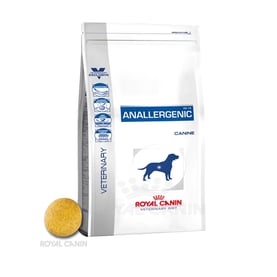In last week's post, we covered Five Signs Your Pet is Allergic. Today, we'll focus specifically on food allergies in your pet.
Sometimes the veterinarian can be suspicious that the reason for your pet’s illness is due to a component of the food. This may be when your pet is itchy, has skin problems, has recurrent ear infections or has a sensitive tummy. At Potts Point Veterinary Hospital we have three steps to our elimination diet routine.
Firstly, the veterinarian at PPVH will take a thorough history of what your pet currently eats as well as what it has eaten in the past. We have a folder of pet food ingredients for you to browse through at the clinic, and may email you a questionnaire to fill out.
Next, together with the vet, you will choose a diet to feed your pet for the next 8-12 weeks. As recent studies suggest that commercial diets may have cross contamination in the factories, you may need to feed a home-cooked diet for the period of the trial.
Often, however, there is a reliable prescription food food available for the trial, such as the Royal Canin Anallergenic diet, the Royal Canin Hypoallergenic diet or Hill's Z/D diet all of which are always available at PPVH.
There are many intricacies in diagnosing a food allergy -- this includes taking into account the cross-reactions between similar species. For example, a pet suspected to be allergic to chicken will be taken off all poultry, not just chicken. A pet thought to be allergic to lamb will be taken off all red meats, such as beef, goat and venison.

But it's not just meat that your pet may be allergic to! Grains and vegetables such as soy, corn and peas, may play a role in your pet's skin problem. The key to a successful elimination diet trial is compliance (i.e. choosing a diet with the vet and sticking to it.) Any additional foods your pet receives during the diet trial will interfere with a diagnoses.
The final step in diagnosing a food allergy is evaluating the response after the 8-12 week trial period. Has the itching stopped? Ear infections resolved? Diarrhea subsided? It's at this point that we may start introducing foods back into your pet's diet to narrow down the culprit.
With strict diet trial compliance and good communication with your vet, a food allergy diagnosis can be made and your pet will forever be grateful!

